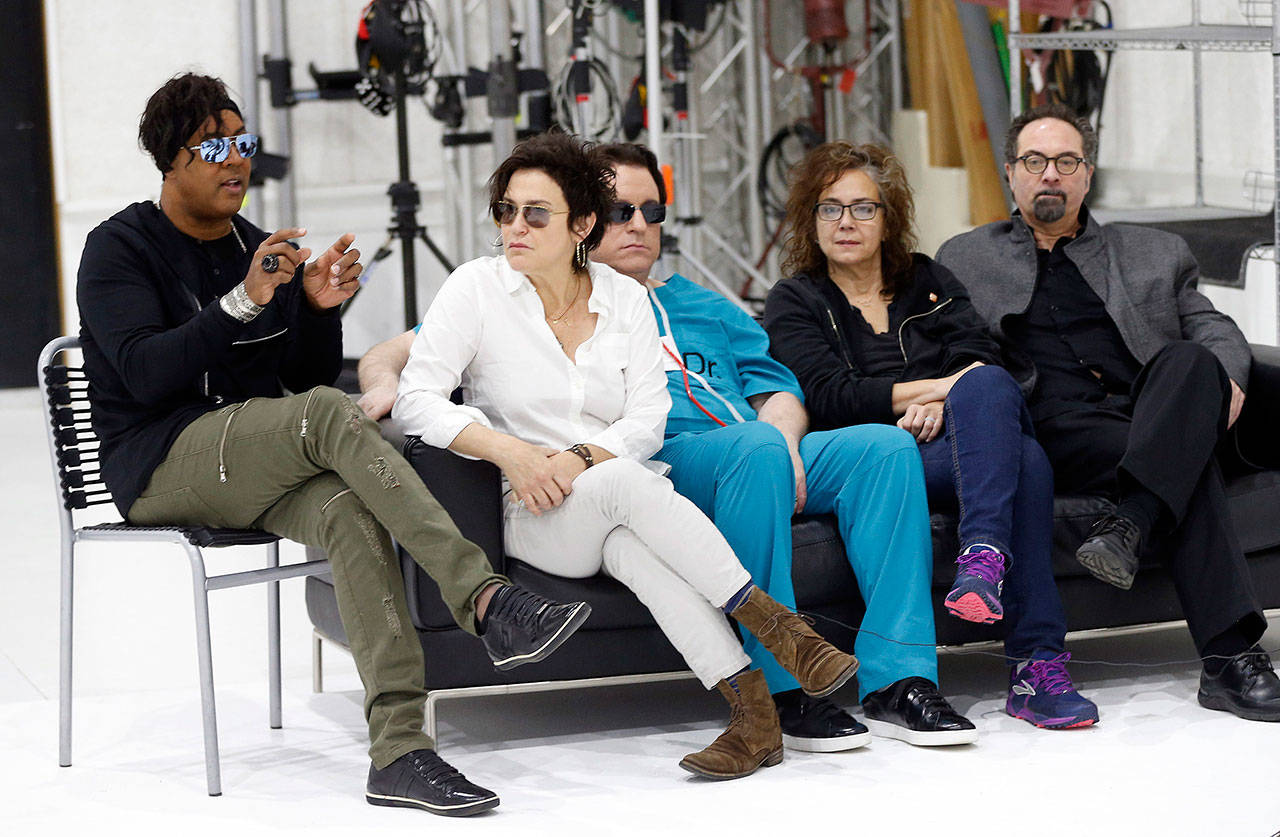By Mikael Wood / Los Angeles Times
In the years since they played with Prince in the early 1980s, Wendy Melvoin and Lisa Coleman have become two of Hollywood’s most prolific television composers, creating music for such shows as “Heroes,” “Prime Suspect” and “Shades of Blue.”
So it makes sense that when recalling three gigs they played last September at First Avenue in Minneapolis — the club where Prince, who died in April 2016, filmed the concert scenes for his classic “Purple Rain” movie — they described the experience in terms of a dramatic TV plot.
“You know how in a murder trial they’ll say, ‘And now the victim’s going to walk through that door,’ but the murderer doesn’t look because he knows she’s dead?” Coleman asked on a recent afternoon. “We were sort of like the jury. We kept looking to the door, expecting him to come in.” Aware of how grim the metaphor was, the women laughed.
“Sorry — gallows humor,” Coleman said. “Sometimes it’s the only kind you’ve got.”
Fourteen months after Prince’s shocking death at age 57 (from an overdose of the painkiller fentanyl), the reality has set in: The visionary musician who recruited Melvoin and Coleman as members of his band the Revolution — with whom he made “Purple Rain” and other signature hits including “Raspberry Beret” and “Kiss” — is gone forever.
Yet the Revolution is keeping Prince’s memory alive.
The group is in the midst of a Prince tribute tour, culminating July 15 with a gig at the Showbox in Seattle. The set includes 11 previously unissued songs from the vault Prince famously maintained at his Paisley Park estate in Minnesota — and which his family and record label have made into “a mess,” according to Melvoin.
But if both projects are meant to honor Prince’s legacy, his former collaborators say they’ve also been crucial in helping them heal the wound of the singer’s absence.
“Music is a way to overcome grief,” Melvoin said as she sat next to Coleman at their studio in Hollywood. Instruments lined the walls of the place, as did several plaques commemorating gold and platinum sales of various Prince records; behind a sofa hung a poster advertising a late-’80s concert by Wendy &Lisa, the sly pop duo the women formed after the Revolution broke up following Prince’s album “Parade.”
The prospect of healing seemed a long way off when the Revolution reunited to play First Avenue last year. Today the musicians — Melvoin on guitar and Coleman on keyboards, along with drummer Bobby Z, keyboardist Matt Fink and bassist Brown Mark — remember those shows as perhaps the most painful in their lives.
“It was like a dark blanket was over the place,” Coleman said. In a separate phone interview, Bobby Z compared it to “trudging through the mud.”
Part of what made it so hard was that they’d been blindsided by Prince’s death; he’d kept his addiction a secret to nearly everyone in his life.
“Prince couldn’t be vulnerable,” said Melvoin, whose contact with the singer in recent years was limited. “So when it got the best of him, there was no way someone that powerful could say, ‘I need help.’”
Coleman said Prince spent his life “pruning his humanity” to become the perfect image of a rock star. “And with that you need to lose a lot of stuff. You lose relationships with people; you lose a normalcy.” She laughed again. “He just didn’t seem like the type to die.”
Though the three shows weren’t fun, they did “lift a weight,” Melvoin said, which allowed the Revolution to see that hitting the road might provide a more joyful opportunity, especially for Prince fans seeking an outlet for their feelings.
“We’re basically the pit band,” Coleman said, accompanying audiences eager to belt out Prince’s songs. “It sounds so corny, but their response to every show is why we keep doing it. People come up to us with the albums they bought in the ’80s and their hands are shaking.”
Both women seemed wary of being seen as exploiting that devotion, with Melvoin insisting they’re “going broke” putting on these concerts. Nor do they want to give the impression that anyone in the Revolution is trying to step into Prince’s high-heeled boots. On tour the band won’t perform anything it wasn’t closely involved in creating — or anything that relies too heavily on the singer’s one-of-a-kind vocal presence.
“I’m not going up there and singing ‘Darling Nikki,’” Melvoin said, referring to the “Purple Rain” track detailing an encounter with a woman masturbating in a hotel lobby.
Talk to us
> Give us your news tips.
> Send us a letter to the editor.
> More Herald contact information.

























